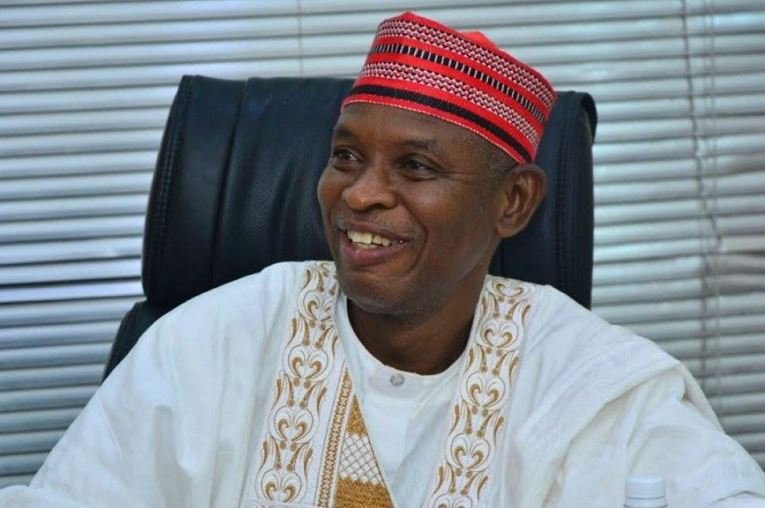Nigeria has obtained a $747 million syndicated loan to fund Phase 1, Section 1 of the Lagos-Calabar Coastal Highway project, covering a 47.47-kilometre stretch from Victoria Island to Eleko Village in Lagos.
In a statement issued on Wednesday, Mohammed Manga, Director of Information and Public Relations at the Ministry of Finance, described the facility as the largest syndicated road infrastructure loan in Nigeria’s history, signalling strong global investor confidence in the country’s reform agenda and infrastructure plans.
Deutsche Bank acted as global coordinator, initial mandated lead arranger, and bookrunner, participating in the syndicate alongside other regional and international lenders. The Islamic Corporation for the Insurance of Investment and Export Credit, ICIEC, provided partial political and commercial risk insurance.
According to Manga, “The syndicate includes support from development finance institutions, export credit agencies and international commercial banks—notably First Abu Dhabi Bank, also acting as Agent across all facilities and Intercreditor Agent, whose involvement underscores its strong and growing support for Nigeria.”
Other participating institutions include the African Export-Import Bank, Abu Dhabi Exports Office (ADEX), ECOWAS Bank for Investment and Development (EBID), Nexent Bank N.V. (formerly Credit Europe Bank N.V.), and Zenith Bank (through its UK, Paris, and Nigeria offices).
The highway is being constructed under an EPC+F (Engineering, Procurement, Construction + Financing) contract awarded to Hitech Construction Company, a leading Nigerian infrastructure firm. The project model encourages private sector partnership and aligns technical implementation with financial structure.
The statement noted that over 70 percent of the section under construction is already completed.
“The highway, constructed using Continuously Reinforced Concrete Pavement (CRCP), reflects a commitment to long-term resilience and efficiency. Engineered for a minimum lifespan of 50 years with minimal maintenance, it offers outstanding durability and cost-effectiveness,” it added.
The design and implementation were informed by thorough technical, legal, environmental, and social assessments to meet international standards. The Lagos-Calabar Coastal Highway is expected to become a crucial trade and logistics corridor, promoting regional integration, tourism, job creation, and lower transport costs. A tolling strategy is being finalized to guarantee operational and financial sustainability.
“These mechanisms will support a self-sustaining, concession-backed framework, helping to ensure long-term viability. Financing for subsequent phases is already being structured, with strong interest from regional and international investors,” the ministry said.
Commenting on the deal, Wale Edun, Minister of Finance and Coordinating Minister of the Economy, said, “The closing of this market-defining financing is yet another testament to Mr President’s commitment to accelerate the participation of the private sector in infrastructure financing and development.”
“It positions the country as being ready for a full transition to the design, development, financing as well as operations and management of critical public infrastructure through Public Private Partnerships.”
“It signals to investors and private sector participants, the sophistication and maturity of the Nigerian market and commitment of the government to sanctity of contracts and innovative structures to fund critical national infrastructure that will deliver sustained and inclusive growth,” Edun added.
David Umahi, Minister of Works, described the deal as a vote of confidence in the government’s economic reforms. “The Lagos-Calabar Highway is a strategic national asset, and this financing sets a strong precedent for future public-private infrastructure partnerships,” he said.
Dany Abboud, Managing Director of Hitech Construction Company Limited, also expressed confidence in the project’s delivery. “With over 70% of Phase 1 Section 1 complete, we are showing that Nigerian engineering—backed by structured international finance—can meet global standards,” he said. “The use of CRCP technology ensures unmatched durability and cost-efficiency.”
Khalid Khalafalla, Chief Executive Officer of ICIEC, emphasized the broader economic benefits. “Through ICIEC’s sovereign risk coverage solution, we are unlocking vital infrastructure that will ease congestion, stimulate regional trade, and drive inclusive economic growth,” he said.
Khalafalla added that the project would “generate jobs, enhance local skills, and support small and medium-sized businesses,” reaffirming ICIEC’s commitment to sustainable development and regional prosperity.










